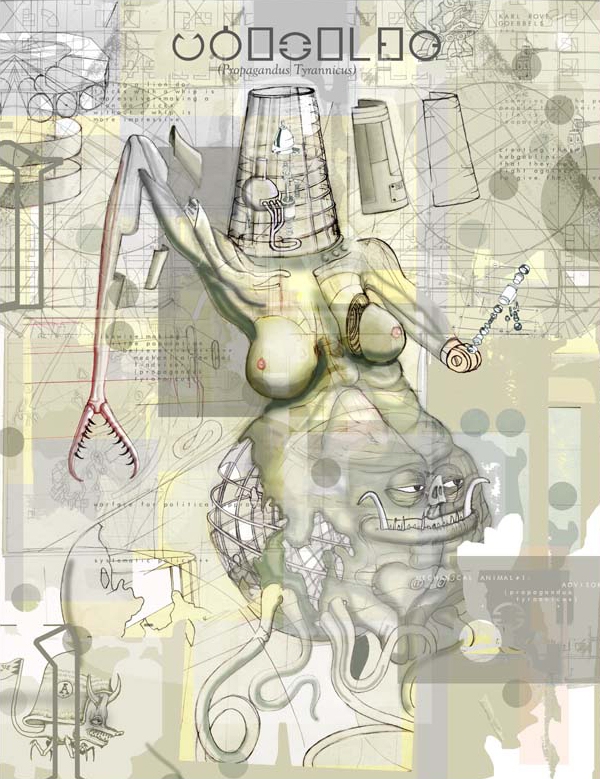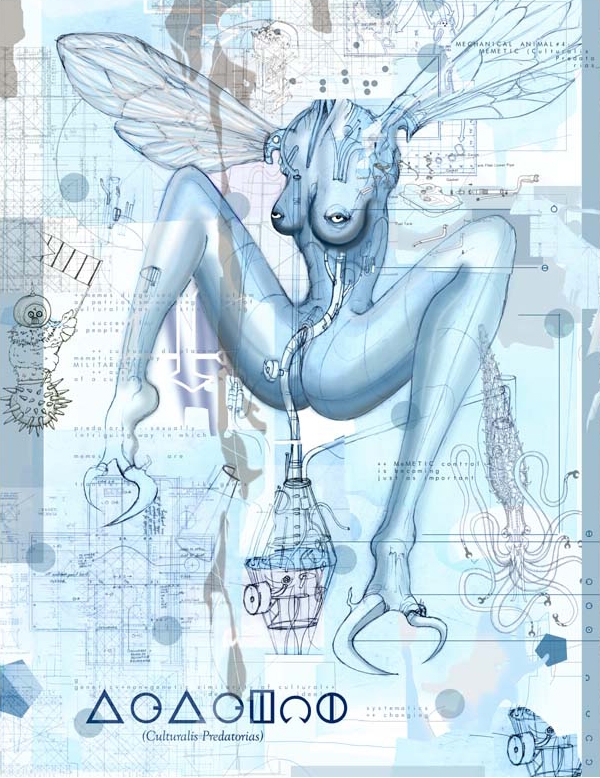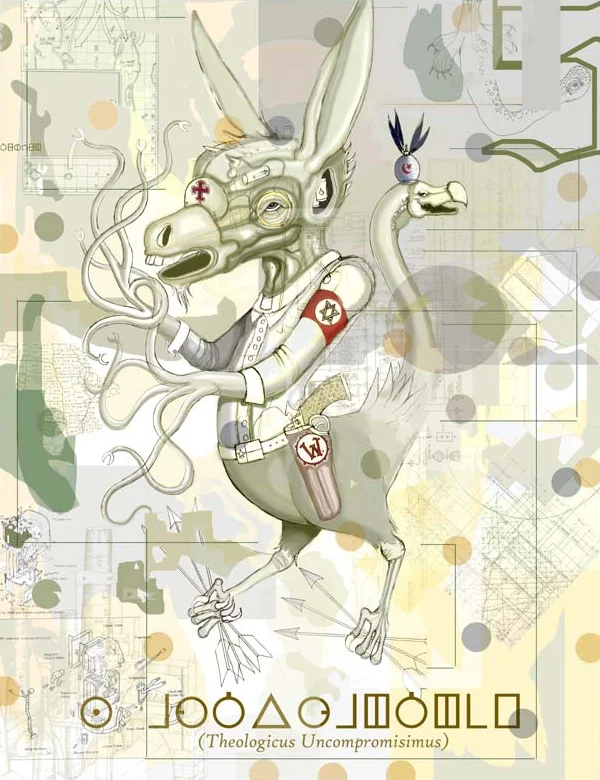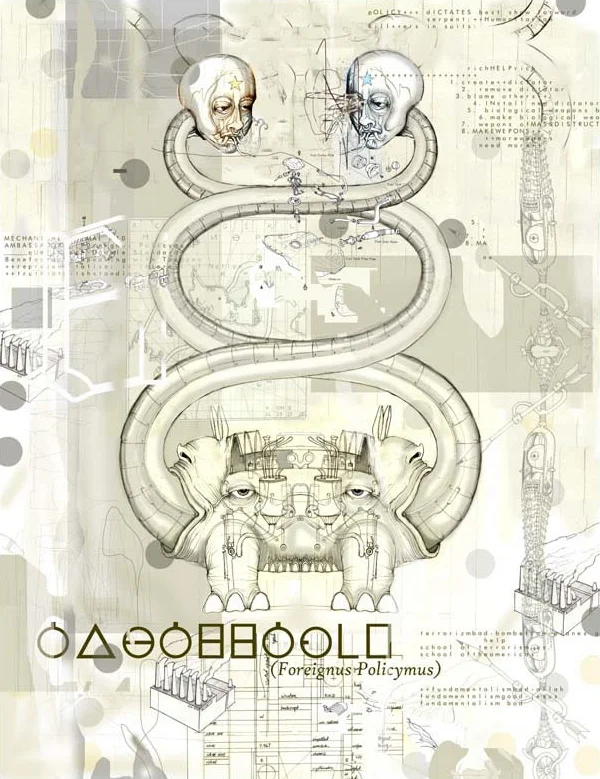Mechanical Animals, 2003
This print series has been an extension of the self-generated mythology named the 'Angst Machina' by creating a new family of manifestations representing socio-political issues. I dubbed them the 'Mechanical Animals' because as the initial drawings began, I had a sense that these creatures (sociopolitical processes) would be done as mechanical cross-section drawings referencing the clockwork mechanisms of oppression, conquest, power, and war. For example, whether dictators, kings, or presidents use different terminology to rationalize and announce the taking over of other countries, their ends are the same as warlords or conquesting emperors, often legitimized through the history of the State. Oppression, dehumanization, enslavement, and inequality seem to recur time and time again in cyclical fashion. So, it seems that we as 'civilized people' act on an instinctive clockwork that depends on rationalizing our own behavior as 'moral' or 'guided' for our own benefit and survival at the expense of others.
The titles are written in Utopian text (Thomas More) as a tongue-in-cheek poke that our societies are heading toward a hierarchical perfection. English binomial nomenclature is given for more insight into their ancestry and derivation of species. For example Mechanical Animal #6 is named Corrector in Utopian and the binomial classification is Behaviorus Dictatum. He is an element of forceful persuasion that has been equipped with an absurd overabundance of canons whose duty is the correction of people's behavior.
Likewise, Civilzer (Mechanical Animal #2), is Pyramidicus Societus. All civilizations have been based on the pyramid system of organization with a ruler at the top, while tribal peoples have a more communal organization. Civilized people have killed or assimilated almost all of the tribal peoples of the world. The underlying behavior of 'Civilizer' then is a clockwork, a way to organize the large numbers of people that agriculture provides (Mechanical Animal #5). We justify civilization as an ultimate good, however I feel we should question the underlying patterns and processes that we value to discuss the destination of 'progress'.










